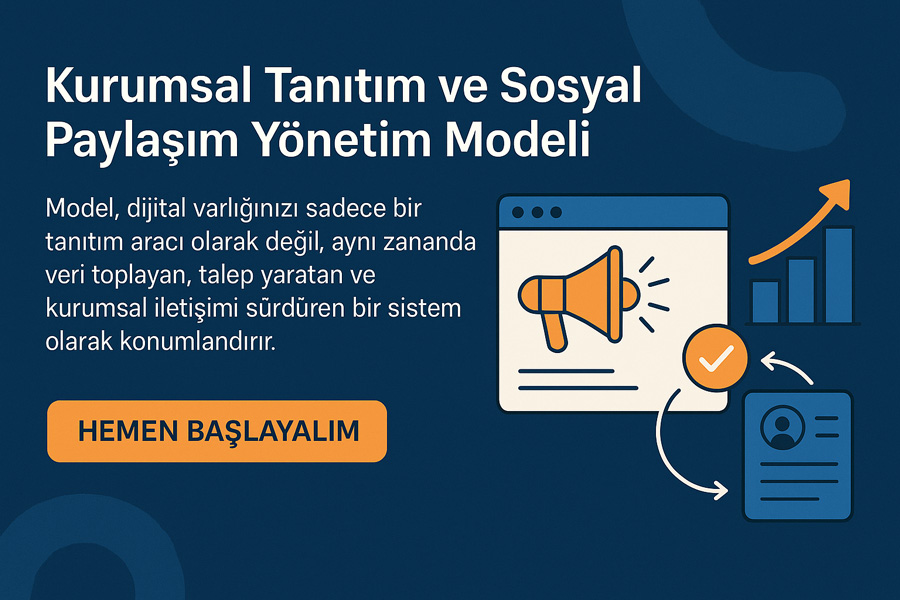In the modern world of business, market research is a fundamental step. Conducting accurate and comprehensive market research before marketing a product or service, whether in domestic or international markets, means obtaining the key to success.
🔍 1. Importance of Market Research:Market research not only helps find *new markets* but also allows you to identify your competitors in your existing markets. This is particularly emphasized by a marketing consultant. Whether it is foreign trade, export or domestic sales, market research has a different place in every sector. So, how is market research done?
🔍 2. Market Research Stages

2.1. Obtaining Market Information:Acquiring market information is the first step in market research. This includes the stages of finding customers in the domestic market and finding customers in the foreign market. A B2B customer discovery process is critical to delve into this information.
2.2. Creating a Customer Database:Finding customer data is vital for creating efficient marketing strategies. This database is also very valuable when collaborating with a digital marketing company.
2.3. Competitor Analysis: Researching the strategies, products and services of rival companies can give you information about sectors where there is a gap in the market.
2.4. Domestic and International Market Research: International marketing and domestic marketing are different. Researching and managing both are important in the overall marketing strategy creation process.
Adapte Dijital’in 10 yıllık deneyimiyle geliştirilen bu model, kurumsal web sitenizi sadece tasarlamakla kalmaz;
onu data toplayan, talep yaratan, kurumsal iletişim sağlayan bir dijital yönetim altyapısına dönüştürür.
Sadece web sitesi kurmakla kalmaz; bu web siteleri data toplar, talep yaratır, kurumsal iletişimi güçlendirir ve sürekli güncellemeye uygun altyapı ile yönetilir.
🔍 3. Expertise and Consultancy Hiring a marketing consultant can be very useful, especially in foreign market research. Consultants who specialize in advising, informing and researching can guide you on how to conduct market research.
🔍 4. Marketing Strategy and Recommendations
When looking for an answer to the question of how to do business, the process of creating marketing strategies should not be ignored. By working with a marketing company or digital marketing company, you can benefit from the experience of those who do it and get trading advice. In conclusion, the key to success in the marketing world is proper market research. This process helps you get to know your competitors in both domestic and international markets, find new market opportunities and create the most effective marketing strategies. Whether you work with a marketing consultant or do it on your own; A thorough market research will help you lay the foundation for your success in trading.
İçindekiler
ToggleWhat to look for in market research?
The key to success in the marketing world is to conduct accurate and effective market research. However, when it comes to market research, the first question that comes to mind is usually “What is looked at in market research?” It is possible. Whether you work for a digital marketing company or a traditional commerce business; This research process is indispensable.
📌 1. Target Audience AnalysisEvery product or service has a potential customer base. Defining this audience is of primary importance, whether for domestic or international marketing activities.
- Age, gender, occupation: These are the most common demographic characteristics.
- Consumer behavior: Information about why, how and when the customer purchases the product.
📌 2. Competitor Analysis Observing the activities of Competitor companies is critical to understanding the general dynamics of the market.
- Products and services: The qualities of the products and services offered by competitors.
- Marketing strategies: Which channels are used, how the target audience is targeted, etc.
Adapte Dijital’in 10 yıllık deneyimiyle geliştirilen bu model, kurumsal web sitenizi kurumunuzu/markanızı anlatan, tanıtan, güven yaratan, talep oluşturan bir dijital yönetim platformuna dönüştürür.
Adapte Dijital, bu modelde bir konumlandırma ajansı olarak çalışır. Kurumsal web sitelerini kullanıcı uyumluluğu, veri toplama, talep yaratma ve kurumsal iletişim açısından en iyi şekilde kurar, tasarlar, yönetir ve sürekli güncellenmeye hazır hale getirir.
📌 3. Market TrendsIdentifying the trends that are dominant in the market and may dominate in the future provides exposure to new market opportunities.
-
- Technological developments: In which direction the market is moving technologically.
-
- Consumer trends: Changes in consumers’ preferences or new habits.
📌 4. Demand for the Product or ServiceDetermining how much demand there is for your product or service in the market will guide you in creating a product launch strategy.
-
- Current demand: How much demand is there for the product or service in the market right now?
-
- Potential demand: How can a demand be created with appropriate marketing strategies?
📌 5. Pricing ResearchA correct pricing strategy determines how your product or service will be positioned in the market.
-
- Competitor prices: Pricing strategies of rival companies.
-
- Customer willingness to pay: How much customers are willing to pay for the product or service.
📌 6. Distribution ChannelsHow the product or service will be distributed is often important in export or foreign trade activities.
-
- Existing channels: Existing distribution channels used in the market.
-
- Potential channels: New and efficient distribution methods.
Ultimately, market research helps a business make strategic decisions about how to position itself in the market. Successful research requires not only looking at what your competitors are doing, but also delving into factors such as target audience, market trends, demand and pricing. Good market research takes your business one step forward and increases the success of your marketing strategies.
Sector research
Industry research is a study conducted to analyze current trends, competition, opportunities and challenges in a particular industry or sector. Effective industry research can guide a business’s strategic planning, marketing and overall business decisions. However, how to conduct this research accurately and effectively is of critical importance.
What to Look for in Sector Research
-
- Sector Overview
-
- Definition: Information about the basic activities, main business lines and general structure of the sector.
-
- Historical Development: Past performance of the sector, growth rates and important turning points.
-
- Sector Overview
-
- Market Size and Forecasts
-
- Current Situation: Current market size and value of the industry.
-
- Future Forecasts: Predictions about what growth rate the sector will show in the coming years.
-
- Market Size and Forecasts
-
- Competition Analysis
-
- Major Players:Main actors in the industry and their market shares.
-
- Competitive Advantages:Which companies have what advantages.
-
- Competition Analysis
-
- Customer and Consumer Analysis
- Target Audience: Main customer segments in the industry and their needs.< /li>
- Consumer Behaviors:Customers’ purchasing habits, preferences and expectations.
- Target Audience: Main customer segments in the industry and their needs.< /li>
- Customer and Consumer Analysis
-
- Technological Developments
-
- Innovations: Latest technological innovations and developments affecting the industry.
-
- Digital Transformation:How digitalization and technological adaptation is progressing in the sector.
-
- Technological Developments
-
- Legal and Regulatory Factors
-
- Legal Framework: Industry-specific laws, regulations and standards.
-
- Risks and Opportunities: Potential effects of current legal regulations on the sector.
-
- Legal and Regulatory Factors
-
- Economic and Social Impacts
-
- Economic Impact: The role and contribution of the sector on the economy.
-
- Social Impact: Impact on society and social responsibility projects.
-
- Economic and Social Impacts
-
- Challenges and Opportunities
-
- Current Challenges: Main challenges and obstacles facing the industry.
-
- Potential Opportunities: Growth and expansion potential in the industry.
-
- Challenges and Opportunities
Industry research can help a business create marketing strategies, manage risks and identify opportunities. Therefore, conducting this type of research in detail and comprehensively is of critical importance in order to be successful in the business world.
Competitor analysis and strategy determination
In a competitive business environment, competitor analysis and determining strategy based on it are critical elements to increase the success of a business. Competitor analysis helps the business evaluate the strengths, weaknesses, strategies and performance of other players in the industry. This information is used to make more informed business decisions.
1. How to Perform Competitor Analysis?
🔍 A. Identification of Competitors:The first step is to identify the main competitors in the industry. This includes direct and indirect competitors. Direct competitors offer similar products or services, while indirect competitors meet the same needs of customers in different ways.
🔍 B. Product and Service Analysis of Competitors:The qualities, pricing strategies, features and customer feedback of the products or services offered by the competitors are examined.
🔍 C. Examination of Marketing Strategies:Competitors’ marketing tactics, advertising campaigns, digital marketing actions, social media activities and promotions are analyzed.
🔍 D. Evaluation of Financial Performance:Analyzing competitors’ revenue, profit margins, growth rates and other financial indicators provides information about their financial soundness.
🔍 E. Examining Organizational Structure and Corporate Culture: Obtaining information about competitors’ company structures, number of employees, company culture and values can provide insight into their operational effectiveness and employee satisfaction.
2. Strategy Determination
✅A. Taking Advantage of Competitors’ Weaknesses: As a result of competitor analysis, The identified weaknesses indicate areas that the business can use as opportunities. These weaknesses can help the business create its own strategies.
✅B. Adaptation of Strengths:If competitors are successful in a particular area, it can be useful to examine the strategies behind that success and adapt these strategies to your own business model.
✅C. Differentiation:To stand out in the market, you can determine a strategy to offer different and unique features from your competitors.
✅D. Reviewing Marketing and Pricing Strategies:By analyzing competitors’ marketing and pricing strategies, you can optimize your own strategies.
✅E. Investing in Technological Innovations:By examining the technological tools and platforms used by your competitors, you can plan to invest in the most up-to-date and effective technologies.
As a result, competitor analysis and strategy determination processes are critical to increasing the competitive advantage of the business and achieving sustainable success. These processes strengthen the business’s position in the market and provide the opportunity to make the most of potential opportunities.
New market entry strategies
Entering a new market for a business often offers many benefits, including growth, increased revenue and increased brand awareness. However, this process is risky and requires choosing the right strategy. Here are some common new market entry strategies and their characteristics:
🌐 1. Entry through Export:This is many companies’ first method of entry into foreign markets.
-
- Advantages: Low investment cost, fast market penetration.
-
- Disadvantages: High logistics and transportation costs, lack of local control and adaptations.
🤝 2. Licensing and Franchising:A company gives another company the right to use intellectual property rights such as trademarks, patents, and copyrights for a certain period of time.
-
- Advantages: Low risk, rapid expansion in foreign markets.
-
- Disadvantages: Loss of control, limited potential income.
🔗 3. Joint Ventures:Two or more companies operate in the market by jointly establishing a business venture.
-
- Advantages: Sharing of risk, access to local knowledge.
-
- Disadvantages: Slow decision-making processes, conflicts of interest between partners.
🏭 4. Direct Investment:The company operates by establishing a completely new facility in the target market.
-
- Advantages: Complete control, maximum income potential.
-
- Disadvantages: High initial investment, high risk.
📱 5. Entry through Digital Marketing:Operating in the target market through digital platforms and e-commerce sites.
-
- Advantages: Low initial cost, reach to a wide audience.
-
- Disadvantages: Lack of physical presence, need for adaptation to local advertising and marketing strategies.
🌿 6. Green Field Investment:When a company builds a facility from scratch and begins operations.
-
- Advantages: Complete control, specially designed facilities.
-
- Disadvantages: High cost, long turnaround time.
🔄 7. Acquisition:The purchase of a business that already operates in the target market.
-
- Advantages: Ready customer base, fast market penetration.
-
- Disadvantages: High cost, cultural integration difficulties.
Each strategy has advantages and challenges. The important thing is to choose a strategy that is compatible with the company’s goals, resources and risk appetite. It is also critical to consider the cultural, social and legal dynamics in the target market. These elements are the cornerstones for successful market entry and sustainable growth.

What are the stages of the market research process?
Conducting market research is critical for a business to be successful. A company planning to enter a new market must first have detailed information about this market. Whether domestic or international, making informed decisions increases the competitiveness of the business. In this article, we will examine the basic stages of the market research process and important points to consider in this process.
📊 1. Determining the Research Purpose:It is essential to define why the research will be conducted. For example, is a business conducting this research to find a new market or to analyze its competitors in the current market? The answers to these questions shape the rest of the process.
🌐 2. Defining the Target Market:Whether it is domestic market research or foreign market research, it is necessary to define your target audience and market correctly. Foreign market research is of great importance, especially for companies planning to export.
📋 3. Choosing Data Collection Methods:Studies generally rely on either primary (field-collected) or secondary (existing) data. If customer finding strategies are implemented in the domestic market, this is where the step of finding customer data comes into play. If B2B customer discovery or consumer market research is being conducted, these methods may vary.
📈 4. Data Collection:At this stage, the process of obtaining market information begins. Surveys, interviews or online research through a digital marketing company are carried out in this section.
🖥️ 5. Data Analysis:By analyzing the collected data, the process of creating marketing strategies and marketing strategies begins. Marketing consultant or a marketing company refers to this data when looking for an answer to the question of how to conduct company analysis.
🚀 6. Implementation of Results: After data analysis, foreign trade or domestic marketing activities are directed in the light of the information obtained. At the same time, competitor analysis is carried out with the information obtained and what the competitors are doing is investigated.
🔄 7. Process Review:Market dynamics change constantly. Therefore, once market research is done, it should not be left aside. Periodically, marketing audits should be conducted and the process should be reviewed.
This article, which provides a general answer to the question of how to conduct market research, has been prepared to provide information to businesses on how to be more competitive in new markets. Whether domestic or abroad, with the right research, the right marketing strategies can be determined and sustainable growth can be achieved for businesses.
Important Information About the Stages of the Target Market Research Process
Target market is where a business plans to offer its product or service. It refers to a consumer segment with certain demographic, geographical, psychographic and behavioral characteristics. Target market research is of critical importance for the business to direct its marketing activities to the right audience. Here are the basic stages of this process:
🎯 1. Determining the Needs and Wants of the Target Market: Understanding whether a market segment truly needs the business’s product or service is a fundamental step. Customer surveys, focus group studies and market information acquisition methods are used at this stage.
🌍 2. Defining Geographical Limitations: It is necessary to decide whether the targeted market will be domestic or abroad. This step is especially critical for companies planning exports and foreign trade.
🧑🤝🧑 3. Creating a Demographic Profile:This involves determining the demographic characteristics of the targeted market such as age, gender, income level, educational attainment.
💼 4. Creating a B2B Customer Profile:If the business offers a product or service for other businesses, it is necessary to focus on factors such as sector, company size, purchasing habits.
🔄 5. Competitor Analysis: It is essential to identify and analyze competing businesses operating in the targeted market segment. It is critical at this stage to investigate competitors’ strategies, strengths and weaknesses.
💡 6. Evaluation of Opportunities and Threats:With methods such as SWOT analysis, opportunities and threats that may be encountered in the target market are evaluated.
🔍 7. Continuous Observation and Evaluation:The target market strategy needs to be constantly reviewed according to changing trends, consumer behavior and competitive conditions in the market.
When creating marketing strategies, determining the target market correctly is of critical importance. This process can be made more effective with the contributions of expert resources such as market research consultancy and digital marketing company. By taking these stages of target market research into consideration, businesses can carry out their marketing activities more consciously and strategically.
What are market research methods?
Marketing plays a critical role in the success of a business. However, accurate data and information is needed to create an effective marketing strategy. One of the most effective methods used to obtain this information is market research. So, what methods should we use when doing market research? Here is the answer to this question:
📋 1. Surveys:Surveys are used to gather information about consumer preferences, habits, and needs by obtaining answers to specific questions. There are different formats such as online surveys, telephone surveys or face-to-face street surveys
🗣 2. Focus Groups:These are discussion sessions with a small group of consumers to get in-depth information on a particular topic. These sessions are usually held with an experienced moderator.
📊 3. Observation Method:This method involves observing consumers in their natural environment, often without them being aware of it. In this way, accurate information is obtained about the real behavior of consumers.
🕵️ 4. In-Depth Interviews:Thanks to one-on-one interviews, in-depth information is obtained about the needs, wishes and expectations of consumers.
🌐 5. Internet Research:In the digital age, gaining information about consumers’ online behavior is of great importance. Web analytics, social media monitoring tools and online surveys are used in this method.
🔍 6. Experimental Research:Controlled experiments are conducted to see the effect of a particular variable on consumer behavior.
📈 7. Statistical Studies:This method provides insight into market trends and consumer behavior, usually by analyzing large data sets. It is used to make statements.
📜 8. Historical Research:Research conducted to obtain information about past market trends, competitor strategies, and consumer behavior.
Market research methods should be chosen depending on the data obtained when creating a marketing strategy. For example, focus groups and surveys may be very useful for a company planning to launch a new product, while statistical research may be more appropriate for a marketing consultant who wants to learn about industry trends and general consumer behavior.</p >
As a result, market research methods help businesses better understand their position in the market, get to know their competitors, and create strategies that address the real needs of consumers. In this process, it is of great importance to choose the right method and analyze the obtained data effectively. Therefore, working with a marketing company or consultant during the market research process contributes to more accurate and effective results.
Who does market research?
In the marketing world, knowledge is power. Accurate, up-to-date and meaningful data is needed to create an effective marketing strategy. So, who collects and analyzes this valuable information? This is where market research experts and agencies providing consultancy services come into play. In this article, we will examine who does market research, taking the prominent Adapte Digital agency in this field as an example.
🎯 1. Marketing Consultancy Agencies:Many companies prefer to receive external professional support for market research. Especially for companies that are new to the sector or have limited internal marketing capacity, agencies provide great convenience in this process. Adapte Digital offers consultancy services to companies from A to Z on market research with its experienced team.
👩💼 2. Marketing Departments:Most large-scale companies have a separate marketing department for this job. However, an external agency, such as Adapte Digital, has advantages when it comes to quickly adapting to external dynamics and providing an objective perspective.
🤖 3. Digital Tools and Analysis Platforms:Thanks to technological advancements, the role of automation in market research has increased. However, an expert team is needed to correctly interpret the data of these tools. Adapte Digital offers detailed market analysis by using digital tools in the most effective way.
📊 4. Independent Research Companies:Some companies outsource market research to independent research companies. However, these companies are often limited to data collection only. The support of a marketing consultancy agency is of great importance in the strategy determination phase.
Adapte Digital does not see market research as just a data collection process. He considers this process as the cornerstone of determining a company’s future strategies. The team not only focuses on competitor analysis and consumer behavior, but also closely follows technological developments, demographic changes and socio-cultural trends in the market.
As a result, market research consultancy is one of the indispensable elements of creating a successful marketing strategy. In this process, acting with the support of a partner who is objective, experienced and has up-to-date information ensures that the results obtained are more effective and successful. By working with a professional agency like Adapte Digital, you can be one step ahead of your competitors.
What Questions Should You Answer in Market Research?
What is market research, market conditions of businesses, customer trends It is a critical process that helps them understand competitive dynamics and opportunities. The information obtained during this process is used to shape business strategies, develop products and optimize marketing activities. So, what questions should be answered while doing this research?
🔍 1. Who is the Target Audience?
-
- What are customer demographics? (Age, gender, income level, education level, etc.)
-
- What are the interests, hobbies and lifestyle of our target audience?
-
- Which geographical areas are they concentrated in?
📈 2. How is the demand in the market?
-
- For which products or services is the demand increasing or decreasing?
-
- Are there seasonal demand fluctuations?
-
- What are the predictions about how market demand will be shaped in the future?
🥇 3. Who Are the Competitors and What Do They Do?
-
- What are the market shares of competitors?
-
- What stands out about the products or services offered by rival companies?
-
- What are the competitors’ marketing strategies?
💲 4. What Should the Pricing Strategy Be?
-
- How much is the target audience willing to pay?
-
- What are the competitors’ pricing strategies?
-
- Is pricing consistent with costs?
🛍️ 5. Which Distribution Channels Can Be Effective?
-
- Where do customers buy products or services?
-
- Which distribution channels are more cost effective?
-
- How should a balance be established between online and offline sales channels?
📣 6. What Should Marketing and Promotion Strategies Be?
-
- Which marketing channels is the target audience more sensitive to?
-
- Which advertising and promotional tactics have been more effective?
-
- What is the cost of customer acquisition and how to optimize this cost?
📉 7. What are the Potential Risks and Obstacles?
-
- What external threats are there in the market?
-
- How can legislation and regulations affect the business model?
-
- Is there a risk of market saturation or decline?
Ministry of Commerce Overseas Market Research SupportYou can review the page.
Finding the answers to these questions helps a business understand its position in the market, make strategic decisions, and maximize opportunities by minimizing risks. However, to find answers to these questions, it is essential to conduct systematic market research, use correct data collection methods and analyze the information correctly.



















































